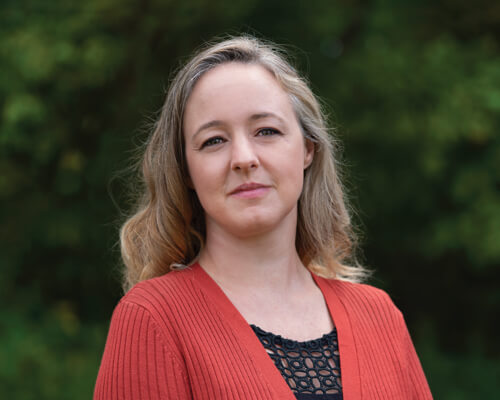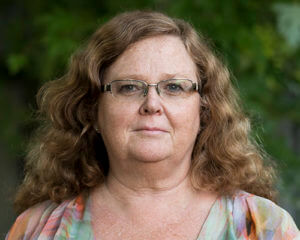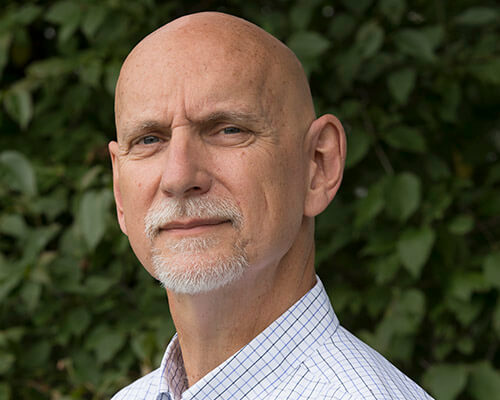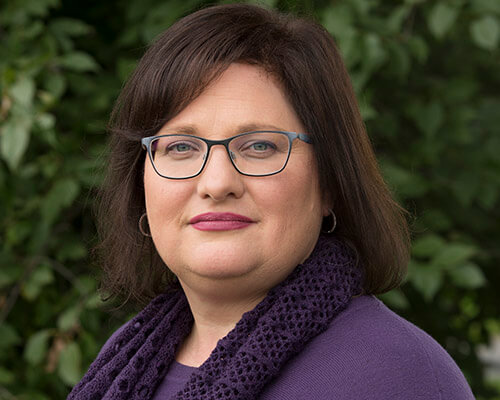Amy
I’m a personal support worker and graduated from Conestoga College in 2005. I absolutely love helping seniors who have dementia, especially those who may be experiencing more complex behaviours as a result of their disease.
Recently, my father-in-law was diagnosed with Alzheimer’s. Before his diagnosis, I had a strong feeling for quite a while that something was happening and had advocated for our family to go and get him checked out to confirm what I was thinking.
I have cared for many residents and their families living with dementia and have firsthand experience with their struggles along the way, from diagnosis, to home care, to long-term care, to hospital stays, to transitioning back into long-term care. Fortunately for my father-in-law, who still lives at home, he has found great understanding and support from the Alzheimer Society.
But I continue to see stigma from both the healthcare side of things and from a family perspective, whether you have dementia or are caring for someone with it. There have been times when the stigma we have experienced as a family has been significant.
Attitudes are changing but not nearly where they need to be. We need to take dementia out of the shadows. I believe education is a huge part of understanding. I also think if people could participate in a program that simulates what life is like with dementia, it would be easier for them to understand, especially for those working and caring for people with dementia. Training is so essential.
A final thought: Try to put yourself in the shoes of someone with dementia. Do not forget the person. They’re still there.
Comments
We may use your information in order to track your relationship with us and our site(s). We do NOT share your information with third parties.

Here are my tips to help you understand:
- Dementia is not normal for "old people."
- All behaviour has meaning and should not be ignored. Even though someone with dementia may be non-verbal they can still hear you…they’re still there.
- Visit as often as you can; be patient and allow the person with dementia the time to process information and respond.
- People with dementia are still people and they deserve to be treated with respect at all times.
- Be kind – always.
-
More Stories
-

Jane
2019
Ontario
-

Keith
2019
Ontario
-

Robin
2019
Ontario
-

Shelley
2018
Ontario

Suzanne O'Connor 1766 days ago
When I attended a workshop put on by the Alzheimer Society Hastings \& Prince Edward office, I learned so much. I was surprised at the statistics and appreciated the 90 minute program which allowed me to know more what it's like to be in the shoes of someone with dementia. I thought I was already a compassionate person towards anyone with a handicap but this experience really heightened my awareness. It was also a bit of a window into what Caregivers of those with dementia do in their day to day lives and also need patience and understanding from the community.
Sharon Burns 1800 days ago
My 80 year old Mother has been in the hospital for the past 3 years on life support due to a stroke. We are now noticing dementia setting in. Slow responding to questions and we feel she doesn't recognize us at times and we visit every day. Looking for help to communicate with her. Any suggestions would help. Thank you.
Ronald Hart 1833 days ago
My wife has been diagnosed with dementia and I need all the help I can get as her primary caregiver!
Debbie 1845 days ago
Hi My mum has been recently dignoused with Dementia has declined in the last 12 months before that she was pretty much doing everything for herself. I am also a support worker as a job as well
Kay Boyd 1851 days ago
So true. The person is there and we need to speak, play, communicate and enjoy/love the person. Leave the illnessin the background, like blood pressure.